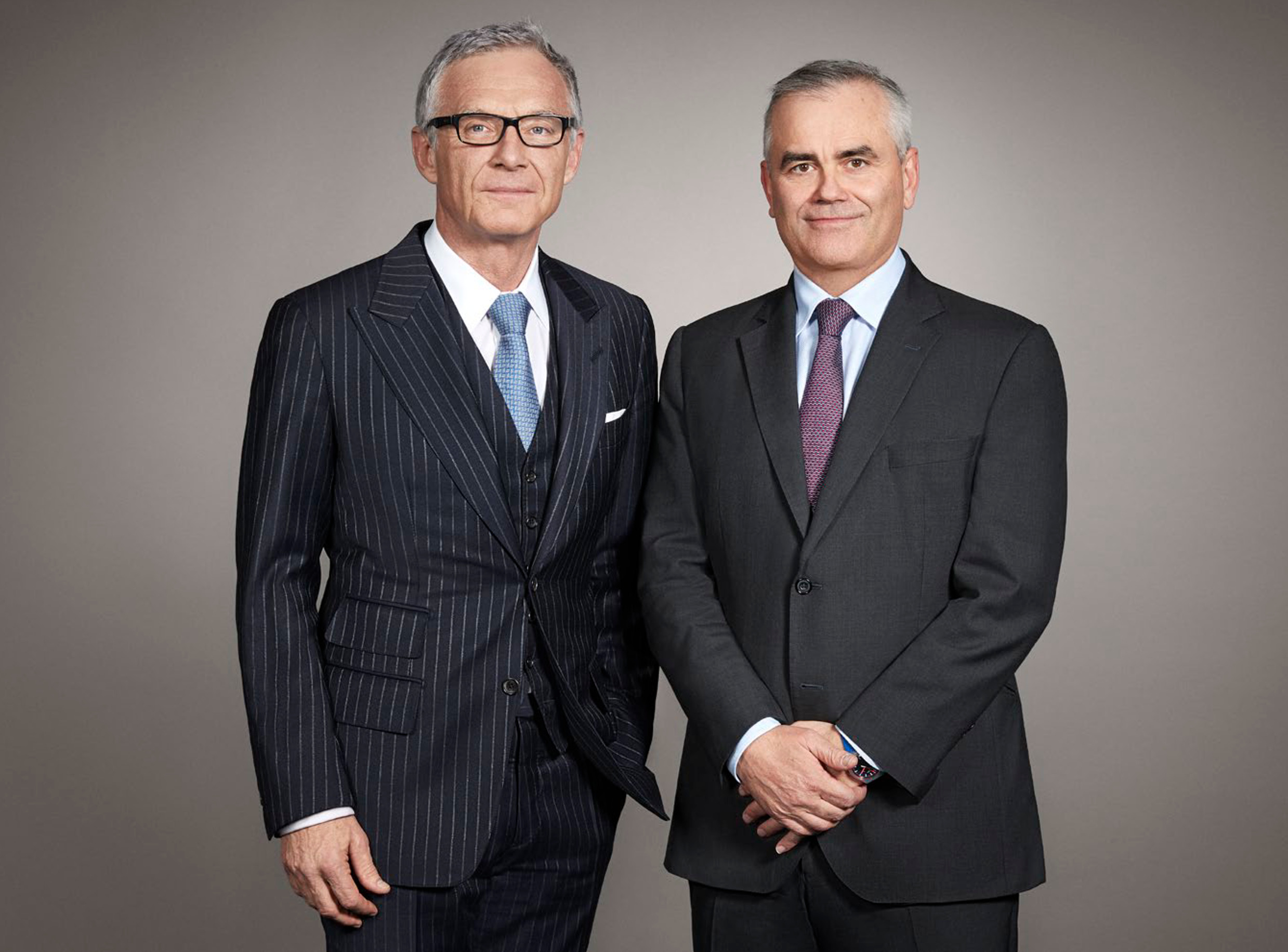Foreword

Dear Reader
2019 was a period of substantial progress for our business, but it also brought new challenges for Credit Suisse. Following the deep three-year restructuring of the bank, this was our first year of operating under our new model. With a reinforced capital position, lower risk exposures and a reduced cost base, we believe Credit Suisse is a much stronger and safer bank today – and this resilience is important to inspire confidence in our stakeholders. During 2019, we continued to deliver on our strategy to be a leading wealth manager with strong investment banking capabilities, offering high-quality service and advice to clients around the globe. Under our new model, we were able to generate profitable growth in 2019 even in unsupportive environments, achieving net income attributable to shareholders of CHF 3.4 billion.
We recognize the importance of upholding international standards and best practices to promote responsible business conduct, such as the UN Global Compact with its Ten Principles on human rights, labor standards, environmental protection and anti-corruption efforts. Equally, we strive to make a meaningful contribution to the realization of the UN Sustainable Development Goals (SDGs), a core element of the UN Agenda 2030 for sustainable development.
2019 was a year in which climate change featured high on the global agenda. Public perceptions of the responsibility of banks relating to climate change altered significantly during this period. At Credit Suisse, we have long recognized the role we can and should play in addressing the challenges of climate change and in supporting the transition to a low-carbon and climate-resilient economy. We publicly expressed our support for the recommendations of the Financial Stability Board’s Task Force on Climate-related Financial Disclosures (TCFD) on the voluntary reporting of climate change risks back in 2017 and continue working on their implementation. For almost a decade, we have been operating on a greenhouse gas neutral basis at all our locations globally. As a further milestone in our action against climate change, we introduced a Group-wide Climate Risk Strategy program and became a founding signatory to the Principles for Responsible Banking (PRB) of the UN Environment Programme Finance Initiative in 2019. The PRB call for the alignment of the banking sector with the objectives of the UN SDGs and the Paris Agreement.
Credit Suisse also launched a partnership with the Climate Bonds Initiative to help promote a sustainable transition bond market. Furthermore, we announced in December 2019 that we would cease to provide any form of financing specifically related to the development of new coal-fired power plants. We are also working with other banks to develop methodologies to measure the alignment of credit portfolios with the Paris Agreement.
We remain active in the rapidly growing area of sustainable investing. In particular, we have further expanded our Impact Advisory and Finance (IAF) department, which identifies and pursues investable projects and initiatives that have a positive economic and social impact while also focusing on generating a financial return for clients. By the end of 2019, Credit Suisse had over CHF 44 billion of assets invested according to sustainability criteria. Another important step was the announcement in September 2019 that Credit Suisse Asset Management has started to systematically reposition its products according to environmental, social and governance (ESG) criteria, working in partnership with IAF. Credit Suisse also actively supports clean and renewable energy businesses and was involved in over 130 transactions in this field with a value of more than USD 100 billion between 2010 and the end of 2019.
Beyond our banking activities, Credit Suisse helps to address challenges facing young people and communities through our multifaceted social commitments. Working with selected partner organizations, we support initiatives that generate a positive economic and social impact in the areas of financial education and financial inclusion. In addition to funding, these partners benefit from the skills and expertise of our employees, who can devote up to four days per year to volunteering to support social projects. Last year, more than 19,000 of our employees spent over 191,500 hours volunteering to help charitable causes. Further highlights in 2019 included the 60th anniversary of the Credit Suisse Americas Foundation, which has invested over USD 100 million to help build capacity in non-profit organizations since its inception. We also launched a USD 1 million three-year partnership with the non-profit career pathways organization HERE to HERE to support a youth apprenticeship program in New York based on the Swiss model.
Continued dialogue and the sharing of knowledge and ideas are essential to the success of all these efforts. Such conversations are more important than ever in today’s rapidly evolving world, with the new opportunities but also the new challenges this change brings for banks and their stakeholders. As we move into the second quarter of 2020, we are witnessing the spread of the coronavirus disease COVID-19 and the significant disruption it is causing to the global economy and society at large. In times like these, we believe that effective cooperation and communication remain key to finding joint solutions and to building strong and lasting relationships – especially with our clients, employees and shareholders.
This Corporate Responsibility Report is designed to be an integral part of our ongoing dialogue with our stakeholders. We therefore welcome any comments or suggestions you may have.
Best regards
Urs Rohner
Chairman of the Board of Directors
Thomas Gottstein
Chief Executive Officer
March 2020